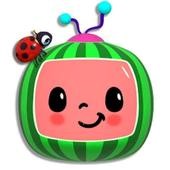 Words trigger experiences and memories in all of us. The words we use often hold a range of meanings for others and ourselves. I am grateful to Salisha for sharing so courageously her story about a word that triggered memories from the past. This is Salisha’s story in her own words. I am very grateful that my two children have each other and play well together, especially in this lockdown period. Their bond has been strengthened and the play dynamic between them has been highlighted. On a Thursday afternoon, my two boys were playing with LEGO, inventing new creations and comparing ideas. “That’s my block” yelled my 5 year old to his 3 year old brother, “give it back right now…you….you… you coconut”. As that word exploded out of my son’s mouth I felt a knot in my stomach. I had heard him use that word before, as well as other fruit and vegetables in the usual sibling spats. Name calling seems to be a way in which my children discharge strong feelings. Punches are substituted with words. This time it did not sit right with me. I could not simply overlook him calling his brother a coconut when that word had such a surreptitious meaning. My son was not aware in the least of the double meaning of the word coconut, but did it make it okay to use it? Why did this name calling incident touch such a sore nerve for me? As a person of colour I have very distinct memories of being called a “coconut”. It wasn’t because I had taken my brother’s toy. It was because I became too “white”. Growing up, whiteness was the standard to shoot towards. Having fair skin, light eyes, a good English accent, eating with a knife and fork as opposed to your hands - these were things to strive for. The more you looked and sounded white, the more doors would possibly open up for you. In a very unconscious way, the longing to belong to the group that seemed to have all the power meant a compromise of my own heritage but at the time, it was a very necessary survival strategy. Apartheid ended, when I was 10 years old, and over the next few years the tide changed, tempers raged and any person of colour that looked and sounded like me was a “coconut” - a traitor, a renegade, Judas, abandoning one’s own race or culture. There was a comparison to a coconut that was brown on the outside but white on the inside. It was a time in which many people needed to discharge angry feelings, and I was on the wrong side of the fence once again, like during Apartheid, feeling excluded and shamed for being who I was. I realised that I needed to explain to my son that he could not use the word coconut and provide a reason. Later that evening, I tried in the simplest way possible to explain to my son that for people who were brown like us, being called or calling someone a coconut is a really hurtful thing to say to them. I began the conversation explaining that in the old days, people of different skin colours were kept separate, and that in South Africa we were sort of a separate nation, and it hurt people to live apart. I went on to say that as times changed, people of all different types of skin colours were allowed to live and be together and that is why we are the Rainbow Nation. My son looked at me in astonishment, his eyes widened and he exclaimed “you’re saying I am brown?” My heart sank as I felt he completely missed the point of the conversation, but then I began to wonder what his remark about race actually meant and where it came from. I realised I had failed my son by avoiding a conversation about race with him. I wanted my children to grow up with an awareness and appreciation of race and culture and be free of any racial biases. In that moment I realised that not creating an awareness of race was something that I intentionally did with my children. Perhaps I needed to protect them from attitudes. How do you explain to a 5 year old that people who looked like him and me were discriminated against in such unimaginable ways? Would he begin to see that the world around him is still a remnant of this? I felt that avoiding a conversation about race had inadvertently meant that so much of what I had felt and experienced growing up in Apartheid South Africa had been projected onto him. That was my experience and not his. The conversation with my son continues and is open ended. He doesn’t call his brother a coconut anymore, but has switched to calling him Cocomelon – a well-known YouTube channel of young children’s nursery rhymes. How do I start a conversation about general name-calling and social media? As a parent, psychologist and person of colour I have started thinking about, searching for, and researching on ways to guide discussions of race in very young children. I have found a few helpful tips and share them here:
Our choices may reflect the world that we want our children to experience.
5 Comments
|
Jacqui couperI have different roles; occupational therapist, mother, wife, friend and sister. I am curious about life and how little children grow to their potential with the support of parents, families and the wider community. Archives
March 2022
Categories |
 RSS Feed
RSS Feed